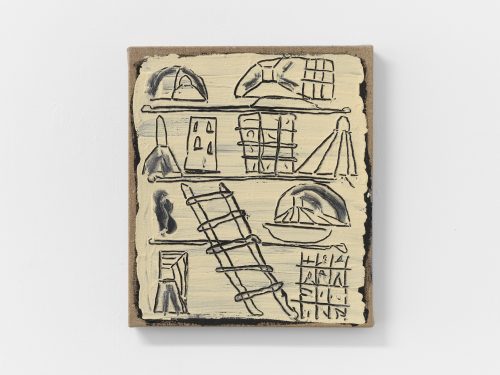
Laura Franzmann
a woman's tail
Project Info
- 💙 Förderverein Aktuelle Kunst Münster e.V.
- 💚 Jana Bernhardt, Jana Peplau
- 🖤 Laura Franzmann
- 💜 Jana Bernhardt, Jana Peplau
- 💛 Goscha Steinhauer
Share on

Advertisement















In "a woman's tail", Saint Gertud becomes the starting point for artistic reflections to rethink rehearsed narratives. For Laura Franzmann, the saint is not a clearly Catholic figure, but rather develops her potential through her ambiguity: variations of the same female* persona appear in different mythologies. In Norse mythology, for example, she is embodied as Frigg/Freya. What the mythological and religious figures read as female have in common is that they are assigned a multitude of tasks and associated attributes. Within her art, Laura Franzmann searches for a language of her own that is not exhausted in unambiguity, as the classical iconographies - be they Christian or profane - suggest. Accordingly, we do not encounter Saint Gertrude in her traditional form in the exhibition, but rather as a contrary being who completely merges with her attributes. In a metamorphosis, the boundaries between female* and non-human dissolve. Even the identification as one or more beings remains open.
The artist creates a new mythical creature that, like the exhibition title, is not immediately decipherable. While the image of a woman with an animal tail emerges when silently reading "a woman's tail", a second meaning unfolds when spoken aloud. In this case, "tail" sounds just like "tale" - story or fable.
During the ten days on site, the artist made the space her own and developed a site-specific installation that brings together her paintings with objects and fabric works. Her painting is not limited to the canvases alone, but extends beyond them to the walls and windows of the space. The result is an overall composition that transforms the former military space into a semi-sacred sphere and takes possession of it: The anteroom is bathed in dim light and sets the scene for a small old oak table on whose surface the artist has drawn with coloured pencil. With candles, flowers and other items, "we keep in touch" becomes an altar. In order to recognise the drawings, the viewers have to bend over the table and thus automatically assume a more humble posture than in usual exhibition situations.
The large exhibition space, on the other hand, contrasts with the natural light that falls through the painted glass windows. The colourful shadows wander through the room as the day progresses. On the brown walls, Laura Franzmann shows three paintings whose motifs only gradually reveal themselves to the viewer. They invite visitors to encounter the depicted creatures, which sometimes hide behind leaves or, as in "three through five in one come in", enter the room in life-size. In this context, the curtain in front of the open window suddenly no longer appears merely as a material repetition of the painted ghostliness, but as a portal for all beings from this or any other possible realm. The movement of the fabric, like the exhibition, is an invitation to encounter the narratives, beings and spirits, to question their roots and tales, and to reflect on common patterns of perception.
Jana Bernhardt, Jana Peplau




